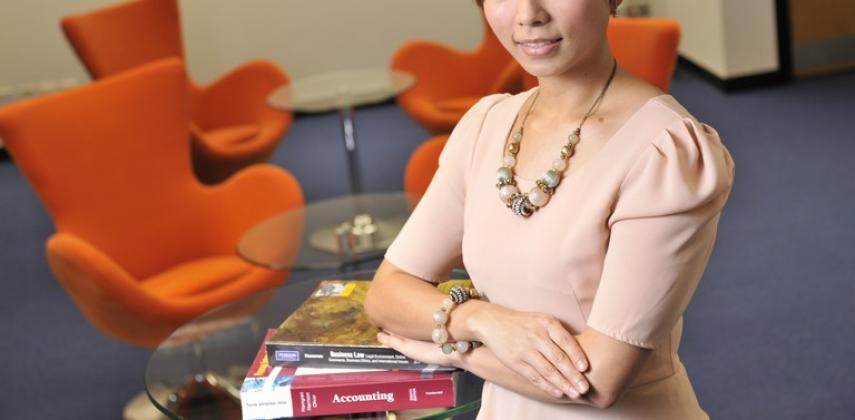The Student
Melody Liu had been working in banking for six years when the world was rocked by the bankruptcy of Lehman Brothers and the subsequent global financial crisis.
Liu’s bachelor’s degree in political science had provided her with good training in analytical and presentational skills but, spurred on by the world financial panic, she decided to enrol on the University of Hong Kong’s (HKU) part-time MBA programme.
Today Liu is a manager at a prestigious private bank responsible for providing first-class investment and asset-management services to high-net-worth clients. She is also a graduate of the HKU Centennial Class, whose graduation coincided with the centenary of Hong Kong’s oldest university.
What prompted you to pursue an MBA?
After the collapse of Lehman Brothers, and the financial crisis that followed in late 2008, I figured it was a good time to get a relevant and meaningful academic qualification under my belt in order to survive in the downbeat market – and then, hopefully, to thrive when the market picked up.
Just as when I go sailing, it is always during the downwind time that I do all the preparation work, patiently and seriously. Then, when the upwind comes, I can move on at full speed.
What were the reasons behind your choice of school?
I believe the HKU MBA provided the most suitable programme for me in terms of relevance, with its strong China focus, curriculum design, choices and flexibility of study mode, alumni network – not just MBA alumni but all of HKU – and location in Admiralty.
Did you fund your own studies or did your company subsidise the costs?
I funded my own studies.
How did you balance the demands of your job and your studies?
The learning curve was steep and I went through many stressful moments when I had to strike a balance between a full-time day job and attending evening classes two to three times per week. The schedule was intense and frantic. Thanks to my considerate and supportive boss, who has been very understanding and always trusts me when I set my priorities in time management between work and studies, I was able to complete my part-time MBA programme in two years.
What were the major challenges of your MBA studies?
I came from a political science background so at the very beginning of the programme, when I had to deal with balance sheets in my accounting class and all the different financial models in my corporate finance class, you can imagine how overwhelmed I was. I had to deal with lots of alien concepts and jargon and felt that I was totally out of my comfort zone. Fortunately, I met a group of very smart and helpful classmates and we tackled different problems together.
How did you expect your MBA to help you with your career or personal life? Were these expectations met?
Overall, the MBA programme was a wonderful experience and it provided me with a broad understanding of business knowledge and managerial skills, a stronger awareness of my strengths, weaknesses and motivations, an expanded social circle of like-minded professionals, valuable friendships that I built with class members, mentors and people I met during the programme, and many fantastic personal memories.
All my pre-MBA expectations were met and I now find myself better poised to make sense of the journey ahead. Being a MBA graduate means a new beginning for my lifelong learning and pursuit of academic stimulation.
How do you think your MBA will impact your career in the future?
My MBA experience has expanded my horizons and opened more doors for me. I believe the “MBA impact” will be beneficial to my lifelong career path. Hopefully, in around three to five years, I can be promoted to director grade.


